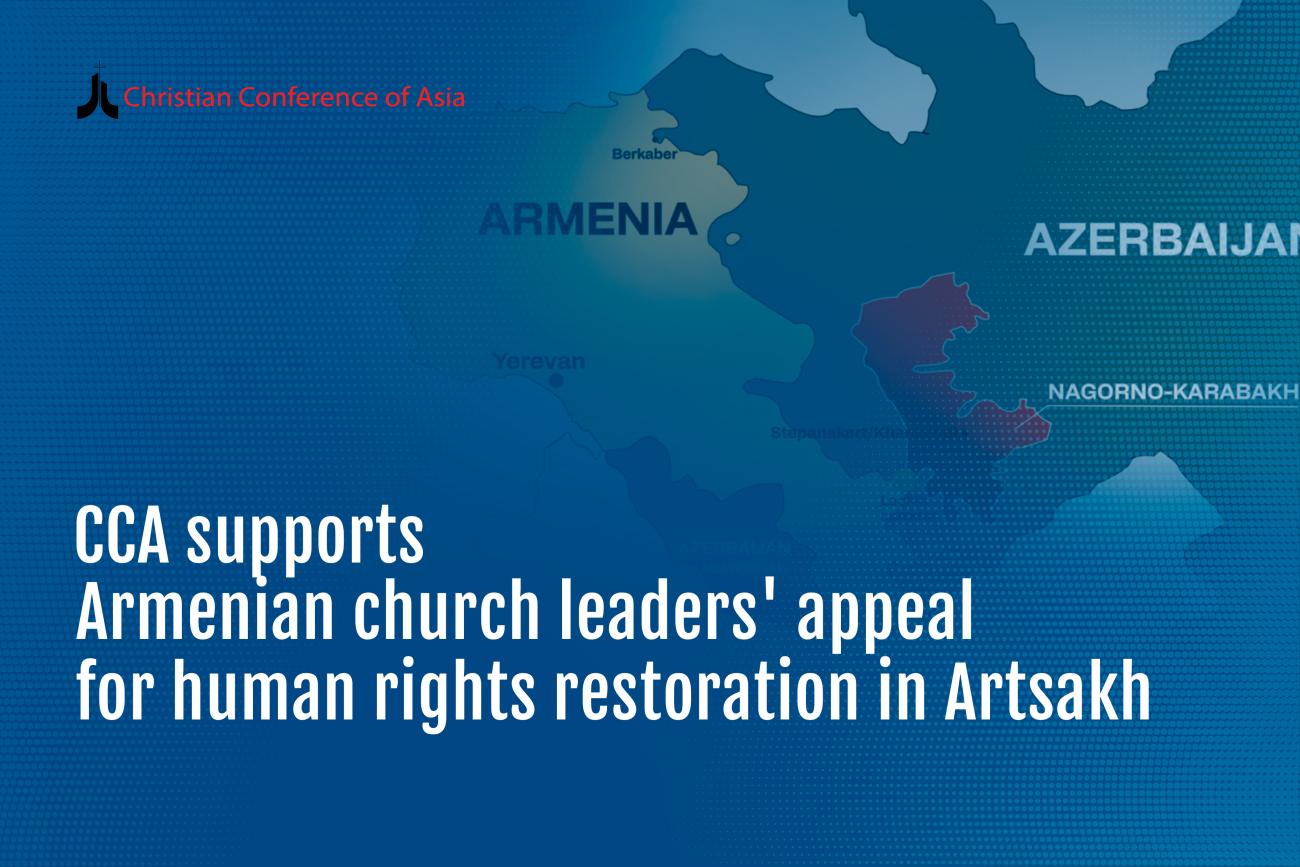Christian Conference of Asia supports Armenian church leaders’ appeal for restoration of human rights of the Armenian population in Artsakh

Chiang Mai, Thailand: The Christian Conference of Asia (CCA) General Secretary, Dr Mathews George Chunakara, has joined Armenian church leaders in West Asia—His Holiness Catholicos Aram I of the Armenian Church, Holy See of Cilicia; His Beatitude Catholicos-Patriarch Raphaël Bedros XXI of the Armenian Catholic Church; and Rev. Dr Paul Haidostian, President of the Union of the Armenian Evangelical Churches in the Near East—in calling for the Armenian people’s right to return to their historical homeland of Artsakh and for the restoration of their human rights.
In a joint appeal issued ahead of the COP29 UN Climate Change Conference in Baku, Azerbaijan, the three Armenian church leaders called for an end to the immense suffering endured by the Armenians of Artsakh due to prolonged conflict and forced displacement.
Supporting the appeal of the Armenian church leaders, Dr Mathews George Chunakara stated, “The Armenian people in Artsakh have faced unimaginable hardship and loss due to the Azerbaijani blockade and military actions in recent years. This enforced mass exodus from their homeland, coupled with the targeted destruction of Armenian cultural, historical, and religious heritage, represents not just an attack on a specific community but also on our shared human legacy”.
“CCA stands with the Armenian church leaders in their call for the international community to address these pressing issues and to ensure the protection and well-being of all those affected by this crisis. CCA also urges political, governmental, and diplomatic circles to heed the calls of the Armenian people and to support efforts for advocacy, justice, and the protection of Armenian cultural, historical, and religious sites in Artsakh”, added the CCA General Secretary.
The statement called for decisive action to address the injustices faced by the Armenians in Artsakh and urged CCA member churches and councils to pray for peace and the quick release of all those imprisoned by Azerbaijan. The statement also called on COP29 participants to advocate for a peaceful and just resolution that respects the rights of the Armenian people.
Armenia and Azerbaijan, once part of the Soviet Union, have long disputed the region of Artsakh. Although Artsakh has a majority Armenian population, it was designated as an autonomous region within Azerbaijan during Soviet rule, laying the foundation for future ethnic and territorial tensions. In recent years, this conflict has intensified, with Azerbaijani military actions displacing 120,000 Armenians from their homeland and targeting Armenian cultural and historical sites. These events have led to growing calls for international intervention to protect the rights of Artsakh’s Armenian population.










